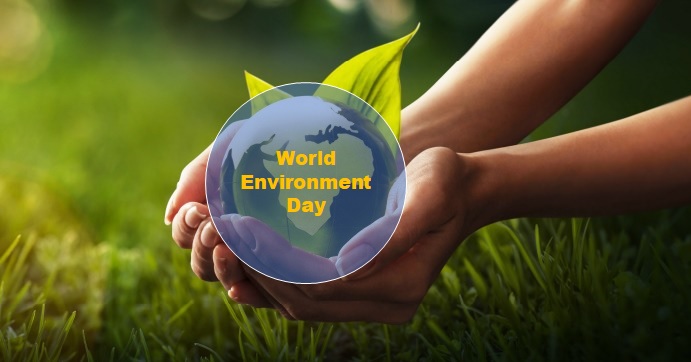ISLAMABAD, Jun 04 (Alliance News): The Pakistan on Monday will celebrate the World Environment Day 2023 in unison with the world to highlight hazards of the plastic pollution imposing grave impacts on mother nature and human health.
The theme for this year’s World Environment Day is “Solutions to Plastic Pollution” which is a reminder that people’s actions on plastic pollution matters. The steps governments and businesses are taking to tackle plastic pollution are the consequence of this action.
The day demands the nations to speed up this action and transition to a circular economy to beat plastic pollution.
According to the United Nations, over 400 million tonnes of plastic was produced every year worldwide, half of which was designed to be used only once. Out of which, less than 10 per cent was recycled.
“An estimated 19-23 million tonnes end up in lakes, rivers and seas annually. That is approximately the weight of 2,200 Eiffel Towers all together. Microplastics – tiny plastic particles up to 5mm in diameter – find their way into food, water and air. It is estimated that each person on the planet consumes more than 50,000 plastic particles per year –and many more if inhalation is considered. Discarded or burnt single-use plastic harms human health and biodiversity and pollutes every ecosystem from mountain tops to the ocean floor,” the UN Report said.
Federal Minister for Climate Change Senator Sherry Rehman has said that Pakistan produced plastic waste equal to the size of two K-2 mountains and polluting the rivers and ocean of the country.
She had claimed that plastic pollution was the biggest challenge of the future.
This underscores the importance of this World Environment Day in mobilizing transformative action from every corner of the world.
Fifty years celebrating World Environment Day
Led by the United Nations Environment Programme (UNEP) and held annually on 5 June since 1973, World Environment Day is the largest global platform for environmental public outreach and is celebrated by millions of people across the world. In 2023, it is hosted by Côte D’Ivoire (Republic of Ivory Coast). In 2021, Pakistan hosted the World Environment Day under the theme ecosystem restoration and the worldwide decade of Ecosystem Restoration was launched.
Some 11 million tonnes of plastic waste flow annually into oceans. This may triple by 2040.
More than 800 marine and coastal species are affected by this pollution through ingestion, entanglement, and other dangers.
A shift to a circular economy can reduce the volume of plastics entering oceans by over 80 per cent by 2040; reduce virgin plastic production by 55 per cent; save governments US$70 billion by 2040; reduce greenhouse gas emissions by 25 per cent; and create 700,000 additional jobs – mainly in the global south.
Last year, 175 UN Member States endorsed a historic resolution to end plastic pollution and forge an international legally binding agreement that will be ready by the end of 2024. This is the most significant environmental multilateral deal since the Paris accord. It is an insurance policy for this generation and future ones, so they may live with plastic and not be doomed by it.
The deepest point in the ocean, the Mariana trench, and the highest mountain peak in the world, Mt. Everest, have one thing in common. That is despite being among the planet’s most inaccessible environments, they both contain tiny pieces of plastic from human activities miles away.
Plastic is predominantly produced from oil and gas, both of which are fossil fuels. The more plastic we make, the more fossil fuel is required, the more we intensify the climate crisis. Also, plastic products create greenhouse gas emissions across their whole lifecycle. If no action is taken, greenhouse gas emissions caused by plastic could account for 19% of the Paris Agreement’s total allowable emissions in 2040 to limit warming to 1.5 degrees Celsius.


